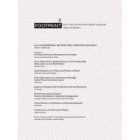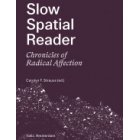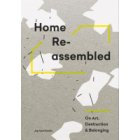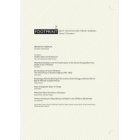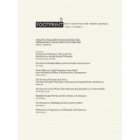Footprint 24
In 1872 Friedrich Engels’s The Housing Question indicated the societal relevance of workers’ housing provision, raising it to a prominent position in the apparatus of the capitalist mode of production. Eventually, in the interwar period, housing for workers had a key role in re-organising class relations and the city, and in shaping modernist architecture. With the reconstruction of Europe in the aftermath of World War II, housing gained momentum as a key factor to secure the social reproduction of labour. However, since the global economic downturn of 2008, housing and the architecture of dwelling have gained again widespread notoriety. The collusion of government (de-) regulation, market ideology, and the architectural desertion of housing theory stalled the production of innovations in the architecture of dwelling and prompted a crisis in the mechanisms producing and distributing housing solutions for different publics. We are now facing a threat to the creation of safe, resilient and inclusive cities and human settlements, one of the goals of the United Nations’ New Urban Agenda.
In Footprint 24 we want to discuss the implications of the neoliberal housing paradox for the discipline of architecture. Re-theorising the architecture of dwelling is urgent to critically assess past and current experiences and provide insights to engage with future challenges. Can this be an opportunity to reiterate the social relevance of housing and thus attract the best planners, urban designers and architects to contribute innovative solutions to accommodate the ‘great number’? Which possibilities are there to engage the architecture discipline in the housing question once more? Which critical approaches to the housing issue after the neoliberal turn can be used to re-conceptualise the architecture of dwelling in a post-neoliberal period? This issue of Footprint aims at examining how the housing policies that unfolded since the 1980s have contributed to re-theorise the architecture of dwelling as a social and spatial practice.
Nelson Mota, Yael Allweil (eds.)



